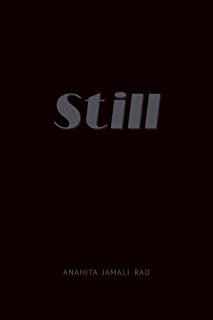Anahita Jamali Rad was born in Iran and now lives on Salish Coast territories. Jamali Rad has published several chapbooks in addition to two full-length books of poetry. Jamali Rad describes her work on her website thus: “Informed by anti-imperialist materialist theory, her work is primarily textual and explores materiality, history, affect, ideology, violence, class, collectivity, desire, place, and displacement.”

Poetry
For Love and Autonomy
Vancouver: Talonbooks, 2016.
PS8635 .A336 F67 2016
Publisher’s Synopsis (From its website)
Anahita Jamali Rad’s debut book of poetry juxtaposes Marxist economics with pop culture lyrics, from FKA Twigs to Sonic Youth, tangling the “You & I” of relationships and social identification. She asks: How is it possible to communicate when the “I” speaks from the margins? Who is the “I” when Motown’s doo-wop and post-punk’s Telecaster jangles shake up the body’s rhythm?
Jamali Rad deals with the stuff of everyday life: work and sex, friendship and love. Her critical attention to the structure of these social relations creates a poetics of trial and failure, questioning the very “culture” responsible for its making as she forges a way for the possibility of radical resistance in language.

Poetry
No Signal No Noise
Vancouver: Talonbooks, 2024.
Publisher’s Synopsis (From its website)
When Zero, the hero of our story, stumbles upon a mysterious manuscript, they’re thrown into a journey across centuries, continents, and concepts. They travel throughout the Muslim world, from Sumeria to India to Baghdad. They learn about Europe as other and outside. They’re guided by the cryptic mirror the manuscript provides as it traces a history of the number zero.
A Jamali Rad’s No Signal No Noise is a playful poetic hybrid, sitting somewhere between philosophical treatise and experimental novel. No Signal No Noise is the first installment in a series that traces the origin of the binary (self and other, good and evil, 0 and 1) in relation to technology, identity, representation, class, orientalism, and nationalism.

Poetry
Still
Vancouver: Talonbooks, 2021.
PS8635.A336 S75 2021
Publisher’s Synopsis (From its website)
still interrogates alienated interiority. It begins with a body, with materiality that slowly morphs, extends, spills, and oozes. A self-withdrawn, hidden presence: silent inactivity, affective and extractive capitalism, surveillance and commodification of behaviour, non-participation, withdrawn complicity, non-subjectivity and refusing a gaze, paralysis in time of crisis – what non-doing undoes.
A powerful follow-up to Jamali Rad’s for love and autonomy, still proposes an alternative to action, a way to be the wrench in the cogs of the machine, a way to jam the ignal by refusing receptivity. still disclaims language, writes without writing, divests in itself, s non-living and unlife. This book begins and ends in emptiness.